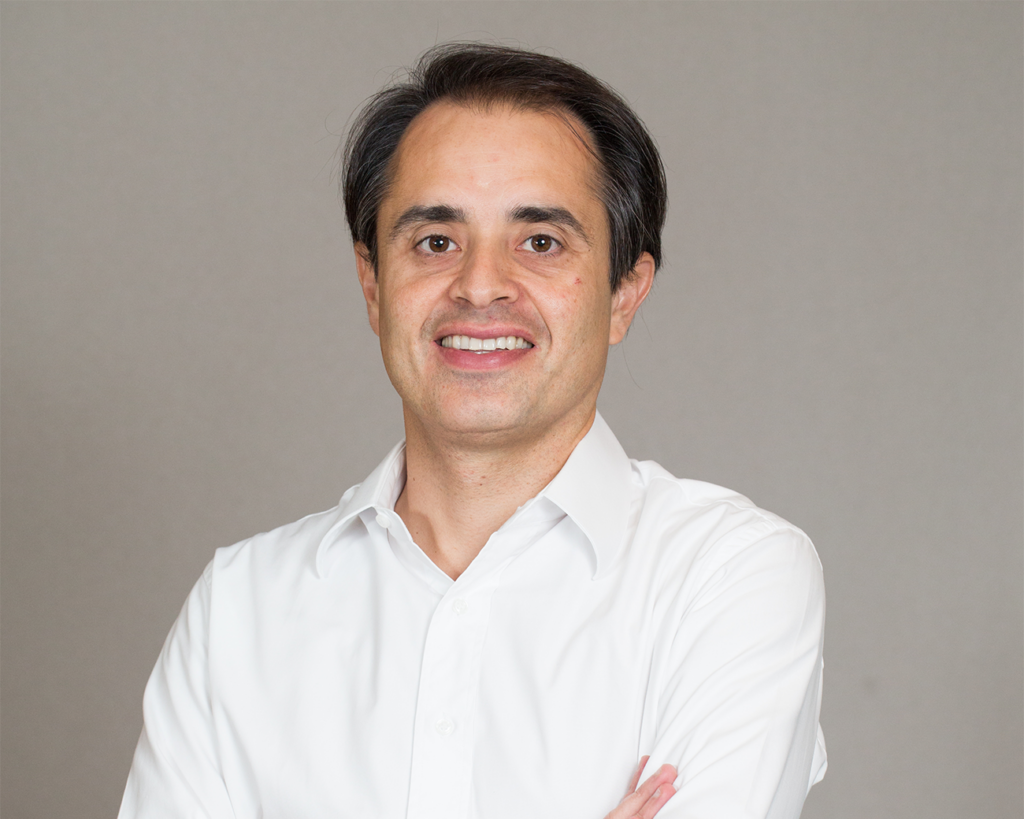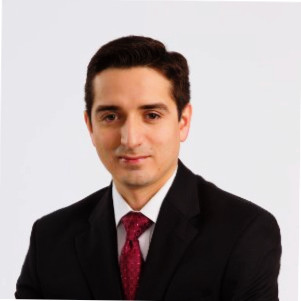LP Profiles, Member Profiles
An Interview with Jose Fernandez, StepStone Group
16 November 2010

Jose Fernandez, Managing Director at StepStone Group recently shared some insights into StepStone’s investment strategies and rising interest in Latin America among its clients.
 LAVCA: Please give some background on StepStone Group.
LAVCA: Please give some background on StepStone Group.
Fernandez: StepStone Group is a global private equity investment and advisory firm that focuses on investing in funds, co-investments, secondaries and mezzanine. StepStone specializes in managed accounts – investment accounts managed for a single investor – that are customized for the specific needs of the investors we work with. Our clients are a global mix of sovereign wealth funds, pension funds, family offices, endowments and foundations. Within private equity we invest across all strategies, from early stage venture capital to mega-buyouts, and in all geographies.
LAVCA: Roughly what percentages of the allocations you perform on behalf of your clients go towards emerging markets private equity and to Latin America specifically?
Fernandez: We customize the private equity portfolios for each of the investors we work with so there is a good amount of variation based on each investor’s needs and requirements. Generally, we invest between 5% to 40% in emerging markets private equity. Most of the allocation to emerging markets private equity is currently invested in Asia; less than 5% of the emerging markets allocation is currently allocated to Latin America.
We expect Asia to continue to dominate the allocation to emerging markets private equity, but we believe that there are great opportunities in Latin America as well. We expect to see more investment in the region over the next few years.
LAVCA: What geographies or countries are of particular interest to your clients right now?
Fernandez: China and India are of particular interest to StepStone because of the huge markets in those countries and the GDP growth well in excess of the GDP growth of more developed markets. Other Australasian countries are also occupying a lot of our time lately.
Our clients continue to build their portfolios in Asia, but they are increasingly looking at Latin America as the next area of focus for investment.
Brazil is the most interesting country due to having the highest population of any other country with a stable political system and economic policies. It also has world-class managers and a culture that is perhaps more entrepreneurial than that found in other Latin American countries, both key ingredients to a thriving private equity industry.
However, if current trends can be sustained, a broader group of countries in Latin America, including Mexico, Argentina and Colombia, will also become interesting markets for global investors.
LAVCA: From within you client base, what is the level of interest and attitude of different types of LPs to Latin America?
Fernandez: Sovereign Wealth Funds (SWFs) in Asia and the Middle East are the most interested in making investments in Latin America in the short term. U.S. Pension Funds are showing growing interest in learning more about opportunities in the region, but are very cautious given past negative experiences and will likely take more time to make meaningful commitments to the region. We expect SWFs and endowments and foundations to be investors in the region next year while many pension funds will continue to do research and learn about opportunities, but may not be active investors in the area over the next 12 to 18 months.
LAVCA: How do you approach the decision of whether to invest in a global fund versus a regional, country or sector specific fund?
Fernandez: We generally prefer country-focused or sector-focused funds because we believe that the networks developed by those funds are much deeper than what can be achieved by funds that have various countries or multiple sectors which divide their attention. These networks are critical for deal sourcing, conducting due-diligence, recruiting management talent and ultimately selling the portfolio companies. However, global and regional funds with strong local teams in various countries are a good option for investors that don’t have a large enough allocation to develop a properly diversified emerging markets portfolio through a number of country-focused funds.
LAVCA: You perform fund investments, co-investments and secondary investments. Has a particular strategy been more successful for you in Latin America?
Fernandez: Currently, most institutions are starting their investment programs into Latin America with fund investments.
However, SWFs and family offices have a lot of interest in co-investments. SWFs are targeting co-investments in the larger end of the market (total enterprise value of more than $100 million) while family offices look at co-investments in the small and mid market sectors. Our clients are looking at ways that they can contribute value to the investment in addition to the capital they contribute, primarily through access to their network of contacts around the globe with other companies and GPs that may be buyers of the products or services offered by the company they co-invest in. In the case of family offices, they are bringing expertise that they have in particular businesses or sectors such as energy or transportation.
Co-investments are an important way for an LP to get to know the GP beyond a traditional due diligence exercise, and can translate into future commitments to the fund or increased commitments to funds managed by the GP.
LAVCA: Are your clients investing in funds alongside local pension funds in Latin America?
Fernandez: The requirement of many local pension funds to have a role in the investment decisions of private equity funds is a big issue for global LPs and most like to avoid funds that have participation by the LPs in the investment decision. Global LPs are used to paying a fee in order for the GP to manage all aspects of the investment decision and the participation of some LPs in all of the fund’s investments decisions is not viewed favorably.
At the same time, we believe that having local investors is very helpful since they are best positioned to evaluate how good a GP’s local network and ability to source and execute on good investments is as long as the GP is given the latitude and independence to make the investment decisions. Pension funds in the US played in instrumental role in developing the venture capital and private equity industry in this country and pension funds in Latin America should play an equally important role in developing their domestic venture capital and private equity markets by being leaders in identifying the best local managers through thorough due-diligence.
LAVCA: What do you think local Latin American institutional investors can learn from global investors about being an LP in a PE fund, LP/GP relations, etc.?
Fernandez: We think that Latin American institutional investors should conform to global standards, best evidenced by the ILPA guidelines, of governance and alignment of interest. Deviating from this through participation in investment decisions can be detrimental to the prospects of the fund to raise money from global institutions.
We believe that with the right alignment of interest, including the right of the LPs to replace the general partner or terminate the partnership without cause, is important for Latin American pension funds and other investors to feel secure that the investment decisions will be made properly by the managers they hire to make those decisions. This will result in greater interest in the funds that local institutions invest in from other global investors. It is notable that most U.S. pension funds supplement their internal staff with outside advisors to identify the best investment opportunities and conduct due-diligence. That is a model that should be examined by Latin American pension funds.
LAVCA: Have you noticed a shift from your clients in regards to expected rates of returns for private equity?
Fernandez: Our client’s expectations have remained fairly steady over the years. Some have lower expectations of return across all asset classes, but we typically need to be convinced that a fund can generate at least 20% net returns and more than 2x our invested capital to consider making an investment.
LAVCA: What is your take on the current state of private equity investment in Latin America?
Fernandez: We believe Latin America is going through a period of renewal and great growth in its private equity industry after having suffered from some periods of negative performance for many managers. Now there is a large number of individuals with great private equity experience in the region that can point to a track record of success through several cycles. This group of individuals is leading the next generation of funds that are very appealing to institutional investors.
Over the next few years Latin America will continue to see the industry expand as investment managers in the region continue to grow as well as the support of local investors, such as pension funds in Colombia, Peru and Mexico. Private equity investments are long-term commitments, so sustained policies that support a stable economic environment are critical for the asset class to flourish in a region.
It will be particularly important that the policies and priorities of Latin American countries continue to support private equity investing, and that the region demonstrates a long-term consistent commitment in order to avoid a major set-back that the region may not be able to overcome for generations.
Another underlying theme is the increasing presence of global private equity managers in Latin America as they follow the global macro-economic growth trends. We have seen increasingly more global asset managers (Blackstone, JP Morgan) investing in local private equity firms in Latin America or entering the market directly with local teams (Carlyle) and foresee this being an even more dominant trend in the near to mid-term, as global players look to gain access to high-growth markets.
LAVCA: How do you see the allocation to private equity in general and to emerging markets private equity in particular changing over the next five years?
Fernandez: Given the need for pension funds and other institutional investors to generate high rates or return on their invested capital we expect allocations to private equity in general to increase over the next five years. We expect the allocations to emerging markets private equity, which are generally between 0 and 5% for most western institutional portfolios, to increase dramatically over the next five years. Many investors are beginning to consider an allocation approach that would be consistent with relative levels of regional GDP. This would result in allocations moving up to the range of 30 – 35%.
The low levels of private equity penetration in emerging markets relative to developed economies (measured as a percentage of capital available for investment as a percentage of GDP) indicates that private markets in emerging economies are more inefficient. We believe that private equity generates its best returns when those inefficiencies exist. For example proprietary deals, rather than auctions, are much more prevalent in such an environment and this typically leads to lower purchase prices. The best managers are the ones organized to exploit those inefficiencies by being able to find attractive companies, buy them with limited competition and then grow them to a level when an auction process or interest by multiple buyers is inevitable. If the manager is able to both grow the revenues and margins of the portfolio company and, at the same time, realize multiple expansion then you are assured a very good return on the investment.
You may be interested in...
-

Luciana Antonini Ribeiro, eB Capital
Executive: Luciana Antonini Ribeiro, Co-Founder and CIO Member Name: eB Capital Year...
-

Cristiano Gioia Lauretti, Kinea Private Equity
Member: Kinea Executive: Cristiano Gioia Lauretti, Head of Private Equity HQ: São...
-

Maria Pia Iannariello, MGM Innova Capital
LAVCA recently spoke with Maria Pia Iannariello, Co-Founder & COO of MGM Innova Capital,...
-

Rafael Ramirez, Portfolio Manager, Alaska Permanent Fund Corporation
LAVCA recently spoke with Rafael Ramirez, Portfolio Manager– Private Equity &...